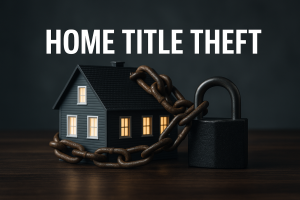Your credit score is important. It can impact your ability to borrow money (and at what interest rate) from anyone. A low credit score could cost you thousands of dollars in higher interest costs over your lifetime. It can also impact your financial life in other areas such as your cost of insurance and your ability to rent an apartment.
A credit report is really the accumulation of what lenders and other companies have reported about your credit worthiness. It also measures how much you borrow compared to your total available credit lines. In other words, it measures if you are reliable in paying back your obligations and if you are overextended on your borrowing.
Standard credit scoring ranges are typically as follows:
300 – 580 Low / Weak credit
580 – 670 Fair credit
670 – 740 Good credit
740 – 800 Very Good credit
800 – 850 Excellent credit
You want to make sure your reports are accurate (you might find errors). You also want to know your score. You want to keep working on improving your score. Your action item would be to get a copy of your credit report from the three main credit bureaus (Experian, Equifax and Transunion). You can check your report for free once per year from each of the credit bureaus at annualcreditreport.com . If you find errors (for example, they say a debt is unpaid but it is paid) you should contact the applicable credit bureau(s) that have reported it and provide the information needed to clear it up. One approach is to get just one credit report every four months by rotating between each of the three credit bureaus with your request which will allow you to comply with the once per year requirement to keep getting free reports. For example, get the Experian report in January, Equifax in May, and Transunion in September every year. Also if you sign up for Credit Karma or have certain credit cards such as Discover, you can get your credit score regularly to keep tabs on it. This is because these companies are already paying the credit bureaus for that information about you and they have decided to share that information with you as a customer service.
You should be aware of the importance of paying your bills on time. This impacts your credit report and score. Set up a process to pay your bills at specific times of the month so that you always make sure you don’t miss paying a bill. Using a bill pay log (a simple list of your monthly bills and due dates that you check off each month) is one way to ensure that you don’t miss any bills. When possible pay electronically by going to your bank’s free online bill pay service and initiating your payments for the month. Those you can pay electronically are the best because the payment is very predictable. Relying on the mail delivery and the related handling process is much more unpredictable and increases the risk that a payment won’t arrive on time or will be lost. Another approach is to give the vendor the ability to debit your account automatically to take the funds owed on the due date. Although that does guarantee on time payment and is used by many without issue, I’m more conservative and prefer to not give another company the rights to take money from my account. I prefer to initiate the funds transfer myself from my bank using my free online bill pay service.
So, in summary:
- Understand that your credit score is important and it can have a real impact on your financial life
- You want to monitor your reports throughout the year for free to make sure the reports are accurate which will allow you the opportunity to correct errors and keep tabs on your credit score
- Set up processes to pay your bills on time every month to avoid late payments that will impact your score
Related topics:



